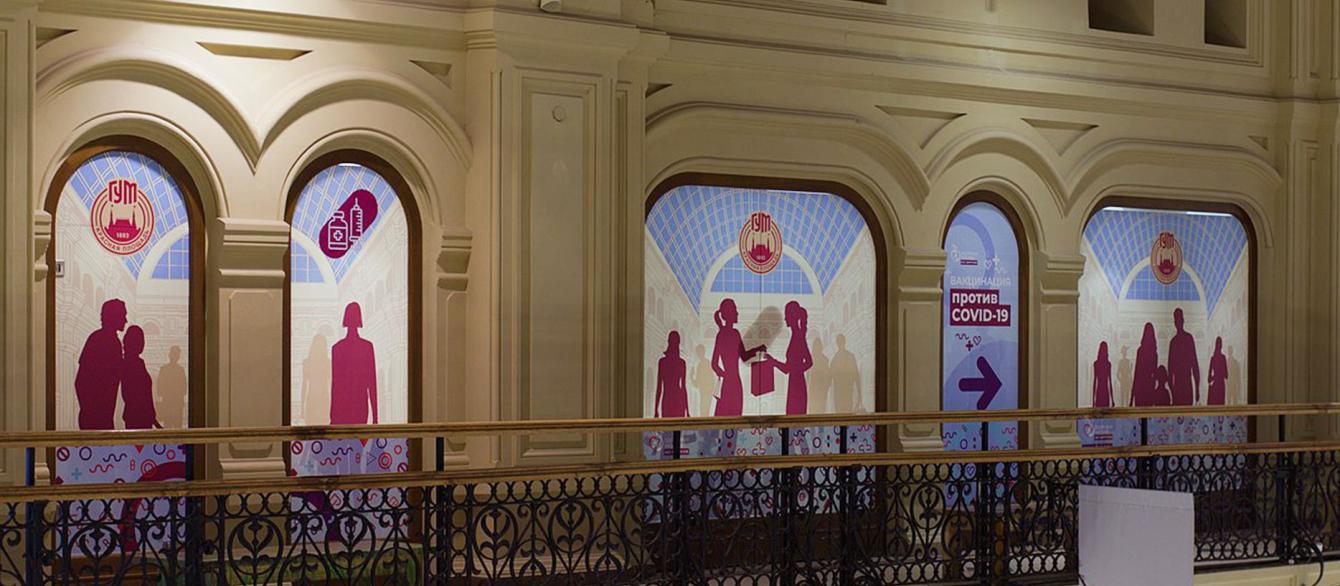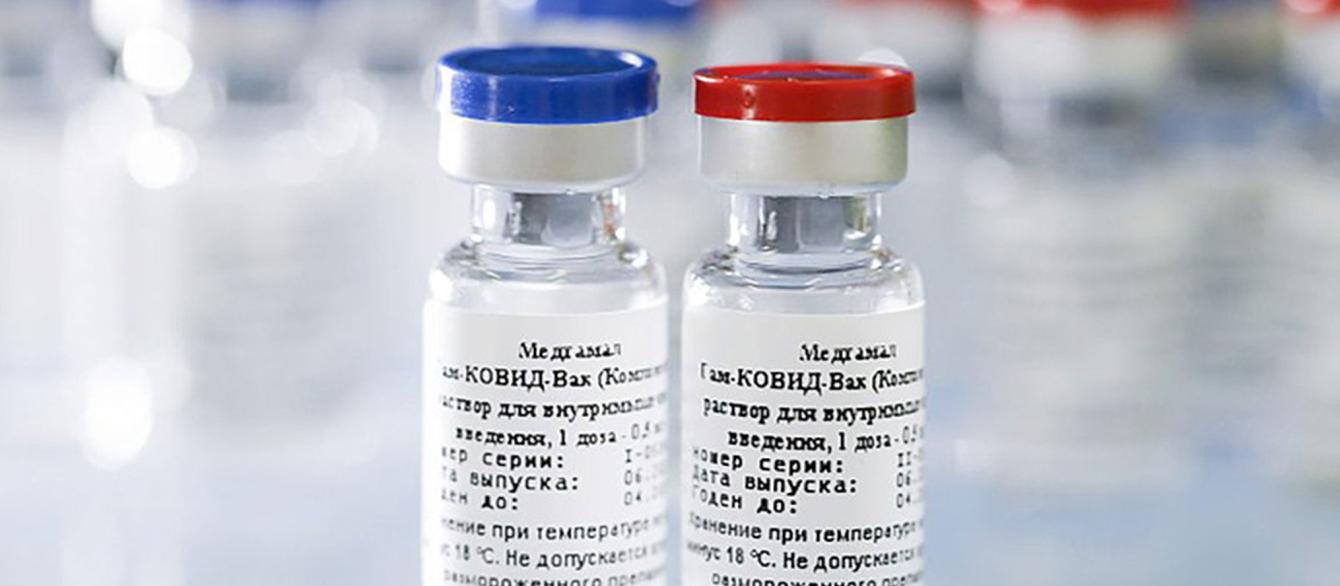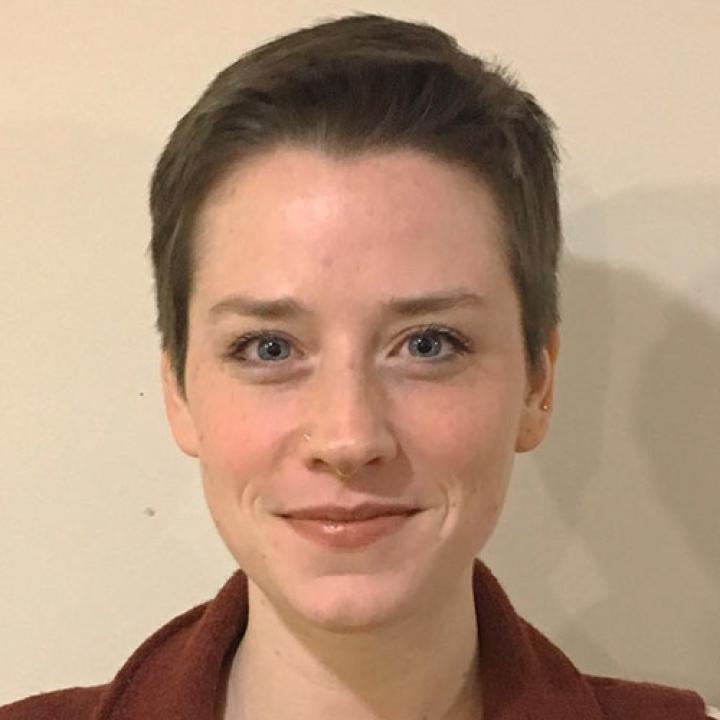Vaccinated several months after its release, Russian President Vladimir Putin likened the efficacy of Sputnik V to one of the deadliest weapons of the 20th century: “Simple and reliable, like a Kalashnikov assault rifle.”
But even Putin’s endorsement has not been sufficient to encourage wider vaccination in Russia. In April, the Levada Center polled Russians to determine attitudes toward vaccination, and found that “62 percent did not intend to get a Russian-made vaccine, all that is available in Russia.”
Some wanted to wait to see how their friends fared first; others feared side effects. Since at least September, the rate of those fully vaccinated in Russia has stalled at approximately 35% of the population, according to Our World in Data.
The Sputnik V vaccine was released before any other COVID-19 vaccine in December 2020. While Russia did not complete clinical trials before its release, the British scientific journal Nature reported in July 2021 that evidence suggests Sputnik V is both safe and effective.
On June 8, Moscow Mayor Sergei Sobyanin required that the city’s residents present a QR Code affirming vaccination, a negative PCR test, or recent recovery from Coronavirus when dining out. Sobyanin wrote to Moscow citizens on June 16, emphasizing that vaccination is not simply a “personal matter,” but an effort to break the “chain for the distribution of a dangerous virus.”
Moscow’s Push to Vaccinate
Moscow, with over 20 million residents in the metropolitan area, has flooded public spaces with vaccination centers. Free vaccines are in government buildings and all the city’s clinics, said Anton Beketov, a 27-year-old programmer who lives in Moscow.
The Moscow government has used incentives to get people vaccinated. In June, Sobyanin announced that residents in Moscow city limits would be entered into a raffle for a free car if vaccinated between June 14 and July 11. The Governor of Moscow Oblast Andrei Vorobyov declared that Russians vaccinated between June 15 and 25 would be eligible to win an apartment.
Public advertisements are another aspect of the city’s vaccination push. Anton Zagrivin, a 22-year-old student of mathematics in Moscow, explained that vaccination is promoted on audio systems in Moscow’s metro, streets, and business centers with messages such as “You need to get vaccinated, it is necessary, it will save millions of lives…”
In a report from Vashi Novosti, one Russian described waiting in line at the grocery store and being bombarded with an interminable, looping 15-second explanation of why one should be vaccinated.
While some campaign messages are neutral, others are shocking. There are massive banners across Moscow that Zagrivin considers “radical.” “Enough with being afraid, get vaccinated!” In Russian, he explained, the message “was directly addressed” to the citizen, constructed in a way that was “personal” rather than using formal language.
Nadia Volovich, a 26-year-old Moscow resident who works as a product manager, found vaccination advertisements to be extreme. One sign asked, “How many people should die for you to get vaccinated?”

COVID-19 vaccination signs and advertising in GUM department store (Moscow, Russia). The capital is flooded with vaccination centers.
Not up to Code
After just over a month, Sobyanin scrapped QR code controls in late July.
According to the Carnegie Endowment for International Peace, the government rescinded the measures in part due to technology failures, and also likely because the new requirements prompted some Russians, not eager to leave jobs or forfeit leisure activities, to seek false vaccine records on the black market.
However, Anton Beketov believes the Moscow QR Code requirements were used to encourage mass and fast vaccination. He found the move to cancel the requirements “rather ironic.” The measure lasted just long enough for some residents to get vaccinated with a first dose so they could go sit in cafes or restaurants but did not necessarily leave enough time to encourage people to get the second shot, Beketov said. Sputnik V, for example, needs at least three weeks between doses.
Similar to Beketov, Anton Zagrivin was confused when Sobyanin retracted QR code requirements and believes it happened too quickly.
While people may not have wanted a shot or believed in its efficacy, Zagrivin said, they went anyway to ensure they could continue living a less restricted life in the city. Once the Moscow government canceled the QR code requirement, however, many people threw up their hands: “Well, what to do? That’s it. We’ve defeated the Coronavirus…”
The QR code reversal and subsequent reactions represent a greater problem across Russia: people simply do not want to be vaccinated.
The Vaccine
There are currently two other Russian vaccines available to the public, CoviVak and EpiVak, both created with technologies different from Sputnik V. Only Russian-made vaccinations are registered and being administered in the Federation, but Russia’s are not approved by the World Health Organization or European Union.
Beketov explained that there were Telegram channels that posted the numbers of certain types of vaccines in clinics across Moscow so individuals could choose which they would receive. Beketov does not know many people who are confident in EpiVac but confirmed that many others have been interested in receiving CoviVak.
Usually, those who want CoviVak are older, he said. Some believe that they might experience fewer negative side effects than with Sputnik V, and they also think it was created with better technology because “they could spend more time [developing] it.”
Volovich knows some people who chose the one that “doesn’t work” with the logic that “it will get me the QR code, and it is better than getting Sputnik, which works, because if it doesn’t work it won’t do anything to me.”
The Influence of Information
Vaccination hesitancy is in part an issue of distrust. Russian citizens have been bombarded with conflicting messages about Western and Eastern jabs, and this has led them to questionable sources in their search for reliable information.
In July, Russian television personality Vasilisa Volodina, host of the show “Let’s Get Married!” on Russia’s Channel One, began uploading recommendations to her Instagram account for when people of certain birthdates should be vaccinated. After she was barraged with requests for more guidance, Volodina began offering personalized vaccination charts that might help people avoid negative side effects of the vaccines.
Nadia Volovich noted that one reason Russians lack trust in the government’s COVID-19 response is because it has a history of presenting unreliable information to the public. According to the Carnegie Endowment for International Peace, the Russian government may have created further vaccine controversy through information campaigns that doubted Western-made shots. "Russian disparagement of other vaccines… has enhanced overall skepticism toward vaccination in general, with Russians often expressing hesitancy to receive any shot, not just Sputnik V,” the think tank reported.
On June 18, Russian publication Novaya Gazeta reported that people have asked to have one vaccine, but then are unknowingly given another. Beketov said it was “wild to hear” that a friend of his father received a first dose of the Sputnik V vaccine but was given EpiVak for his second shot without his consent. “I was worried,” he said.
When such stories make it through the rumor mill, word moves quickly—another barrier to vaccination.
Where to from Here?
Moscow authorities gave a vaccination push another go in October, offering pensioners 10,000 Rubles (approximately $140 USD) to get two doses by the end of the year. Elderly Muscovites are also eligible for the cash payout if they get a booster shot, and all will still receive gift sets that were offered previously. However, while this targets a vital group, a campaign like this has little potential to go much further with the population.
Volovich believes that Russian vaccines offered now are still too shrouded in doubt for many people to opt into non-compulsory vaccination, though there is hope that introducing Western options will increase rates.
Because Sputnik V is still not registered with the World Health Organization, which limits mobility for those with the Russian shot, the population may be more likely to accept a Western vaccine so they can travel outside of their country. By October, hundreds of Russians had flocked to Serbia to receive Western vaccines; at the time, they could also be vaccinated in Germany. Now Russians can go to Serbia, Germany, Croatia, or Greece to be vaccinated or receive a booster shot.
As tides of uncertainty continue to sweep Russia, there is still room for change. QR codes, for example, might be making a comeback. On November 12, the Russian government proposed legislation that would mandate QR codes for all citizens to use trains, airplanes, to gather in public places such as restaurants, and to attend mass events.
On September 30, Russia finally completed the phase three trials for Sputnik V, and on October 7, Russian Direct Investment Fund head Kirill Dmitriyev announced that the WHO would send a delegation to Russia to commence the approval process for the vaccine in October.
Unfortunately, the European Union has since pushed the approval process back to 2022, another potential blow to stabilizing COVID-19 rates in the Federation. Another spike in cases and new partial lockdown of Moscow, a non-working period where residents were still allowed to roam the city between October 28 and November 7, quickly followed the delay.






